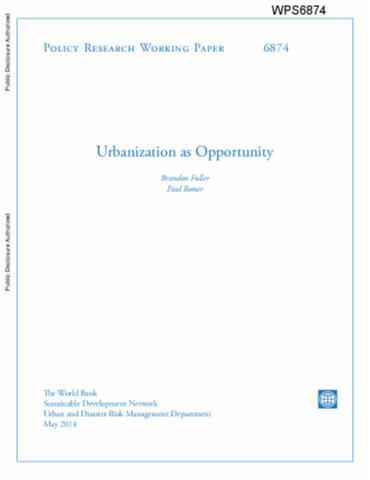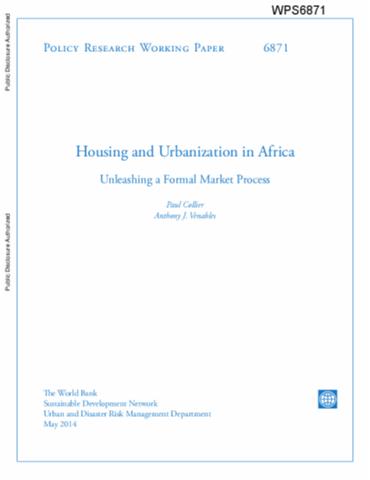Converting Land into Affordable Housing Floor Space
Cities emerge from the spatial
concentration of people and economic activities. But spatial
concentration is not enough; the economic viability of
cities depends on people, ideas, and goods to move rapidly
across the urban area. This constant movement within dense
cities creates wealth but also various degrees of
unpleasantness and misery that economists call negative
externalities, such as congestion, pollution, and



